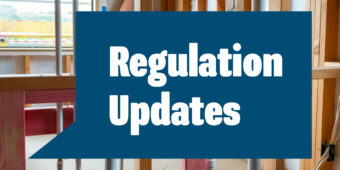Support for businesses during lockdown
15 Apr 2020, Industry Updates, News

Is your business entitled to government subsidies? What has changed since lockdown began? This article explains what help is available and how you can access it
The closing of essential businesses over the lockdown period has meant many in the construction industry have seen their work come to a temporary halt, unless it comes under the umbrella of ‘essential business’.
For building and construction, essential business relates to the following:
- Any entity involved in building and construction related to essential services and critical infrastructure.
- Any entity involved in building and construction required immediately to maintain human health and safety at home or work.
- Any entity that performs or is involved in building and resource consenting necessary for the above purposes.
For most business owners, their current work will not qualify as essential, meaning they have no source of income with which to meet financial commitments such as paying wages or paying off debt.
To mitigate this situation, on 17 March Finance Minister Grant Robertson announced a wide-reaching $12.1bn economic support package. Employers can apply here. The total sum was broken into three areas:
- $500 million boost for health.
- $8.7 billion in support for businesses and jobs.
- $2.8 billion for income support and boosting consumer spending.
“I want to make it clear that this is not a one-off package, it is just the beginning. As we go through this crisis towards economic recovery the Government will be constantly monitoring the situation and adjusting its response,” said Robertson. “As with every action we have taken, we will be constantly reviewing every measure to ensure it is getting to the people and businesses that need it the most.”
Wage subsidy
To help sustain affected businesses across all sectors and regions, the stimulus includes a $5.3bn (recently upgraded to $9.3bn) wage subsidy. This subsidy is for employers, contractors, sole traders and the self-employed who fit the below criteria:
- The business must be registered1 and operating in New Zealand.
- Employees must be legally working in New Zealand.
- Business must have experienced a minimum 30% decline in actual or predicted revenue over the period of a month when compared with the same month last year, with evidence showing the decline is related to COVID-19.
- Your business must have taken active steps to mitigate the impact of COVID-19.
- You must make the best effort possible to retain employees and pay them a minimum of 80% of their normal income for the subsidised period.
“The $9.3 billion is an estimate, not a cap or a floor. This means the support will be there to meet the demand. We are doing what it takes to put support in place for workers and businesses,” said Robertson.
The subsidy amounts to $585.80 a week for a full-time employee (20 hrs or more) or $350.00 per week for a part-time employee (less than 20 hrs). This is paid out as a lump sum for a period covering 12 weeks, meaning employers will receive a payment of $7,029.60 for a full-time employee and $4,200 for a part-time employee.
As of 7 April, the scheme had paid out $6.6 billion to over one million workers, comprising 914,931 employees and 158,198 sole traders, representing 41% of the New Zealand workforce.
Treasury has estimated the scheme will pay out between $8 billion and $12 billion in total.
To increase transparency, the Ministry of Social Development has also set up the Wage Subsidy Search for employees to see if their employer has received payments under the COVID-19 Wage Subsidy Scheme.
Cash flow
The stimulus also dedicates $2.8 billion in business tax changes to free up cashflow, including a provisional tax threshold lift, and the reinstatement of building depreciation and writing off interest on the late payment of tax. These changes include:
- Increasing the provisional tax threshold from $2,500 to $5,000 from 2020/2021.
- Increasing the small asset depreciation threshold from $500 to $1,000 — and to $5,000 for the 2020/21 tax year.
- Allowing depreciation on commercial and industrial buildings from 2020/2021.
- Removing the hours test from the In-Work Tax Credit (IWTC) from 1 July 2020.
An evolving situation
Information may change frequently as the Government responds to COVID-19. Under Construction will continue to update readers as new information is released, and explain what it means for those in the building and construction industry.
For more information on the economic package and how it might help you, click here.
1 Sole traders don’t have to be registered.
Register to earn LBP Points Sign in



